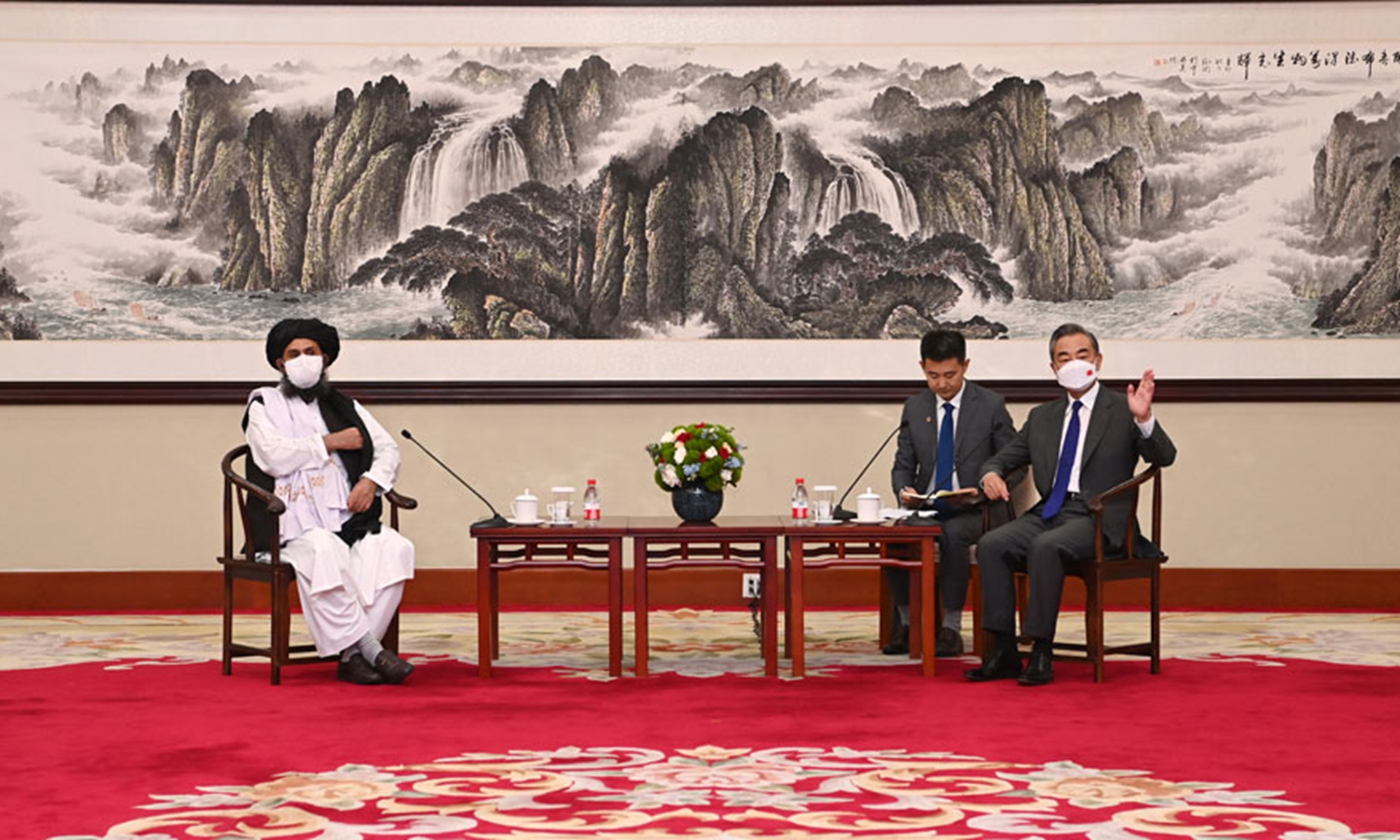
by Zafar Iqbal Yousafzai 15 August 2021
China is continuously hosting Taliban delegations since 2014. China sees the Taliban as an emerging force in Afghanistan that can serve their interests in case of better relations with them. China has been actively engaged in Afghanistan since the start of the new millennium though there is no Chinese military involvement in the country. China wants the Taliban to crackdown on the East Turkistan Islamic Movement in Afghanistan which is fueling the insurgency in Southern China. This article looks into the recent China-Taliban engagement and will answer what interest China wants to pursue in Afghanistan under the Taliban and what kind of support the Taliban want to garner from China.
For many reasons, Afghanistan is important for China. One, Afghanistan is geographically vital for China as it connects China with Iran and The Persian Gulf, Central Asian states and is a potential route for the Chinese Belt and Road initiative. BRI cannot be successful until peace and stability in Afghanistan. China is pushing both the Taliban and the Afghan government to follow a negotiated settlement. Besides China, other regional countries are also worried about the precarious security situation. China has been pressing the Taliban to make clear their policy about any militant infiltration in China.
Similarly, China is concerned about her security where the ETIM was conducting activities from across the border from Afghanistan. The Xinjiang insurgency has been a serious concern for China. The US invasion of Afghanistan was promising for China having the hope the US operation will eliminate the ETIM insurgents. However, China is still worried about the insurgents that can challenge China’s security. Even in the 1990s, China decided to engage with the Taliban to curb the extremists coming to China from across the border.
Moreover, China wants to boost its economic engagement in the country having huge minerals and natural resources. China is the largest investor in Afghanistan. However, its two major projects: the Amu Darya oil project and the Aynak copper project have failed due to the security vacuum in the country. Developing a feasible infrastructure remains difficult in a volatile security situation. Likewise, China wants to extend its role in Afghanistan as a regional player and take a lead in bringing stability to Afghanistan.
On the contrary, the Taliban wants China to support them politically and invest in Afghanistan. Taliban has eyes on the future set up where they see their bigger role which has no realistic signs at the moment. However, they are keeping engagements with all regional powers and neighbors to have a cordial relationship. For the sake of good relations, the Taliban has been time and again reiterated their commitment that the Afghan soil will not be allowed to be used against any country.
The Taliban in during their recent visit to China termed China a welcome friend and signaled they would not interfere in Beijing’s internal affairs. It was clearly meaning they are not concerned with Xinjiang but rather their country Afghanistan which needs China’s support and that can only be possible once the Afghan soil does not become a threat to Chinese security.
Alike, the Taliban needs international legitimacy although they have gained it to an extent after signing the Doha deal with the US, however, the Chinese support is quite crucial for them as China is in the opposition to the US. If the Taliban want international legitimacy, they would have to be serious about the negotiation process and reaching any peaceful settlement. The current Taliban swift advances are a serious concern for the regional countries. All the regional countries including China and Pakistan want a negotiated settlement rather than a takeover of Kabul which will have its own implications. Even if the Taliban take over Kabul by force, they won’t be able to sustain their rule without the support of the international community.
The author is Senior Research Associate at Strategic Vision Institute, Islamabad and author of the forthcoming book “The Troubled Triangle: US-Pakistan Relations under the Taliban’s Shadow” (Routledge). He tweets @yousafzaiZafar5
